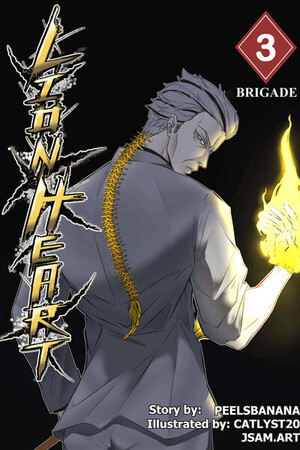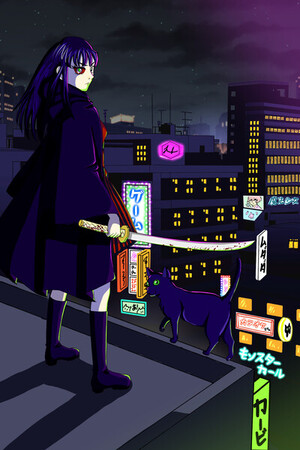Chapter 15:
Embers of Rebellion
Immigrant Diaries
The night air was thick with smoke and the metallic tang of blood. We’d barely escaped the inferno at Batu Caves, and already the city’s pulse felt different—quicker, angrier, alive with tension. Flaming torches from the rival gang’s retreat lit up the limestone cliffs as Farzana and I stumbled into an abandoned warehouse on the outskirts of Kuala Lumpur.
My heart was pounding so violently it felt as though it would burst from my chest. Every nerve in my body screamed to run, to hide, to shed this identity one more time and vanish into the darkness. But as I looked at Farzana’s determined face, I knew there was no running anymore. We’d ignited a war, and now we had to fight it.
“Status?” I hissed, dropping to one knee and scanning her silhouette.
She knelt beside me, fumbling for her phone. Her fingers trembled as she scrolled through the burner messages. “They’re mobilizing. Red Fang and their allies are hitting three of our safehouses tonight—and Khaled’s men are cutting a deal with the new paramilitary unit. They want us crushed.”
My jaw clenched. “So they see us as a threat.”
“More than that,” she replied, voice low. “They see you as the spark that lit their fuse.”
I closed my eyes, breath ragged. This was my doing—the orphan boy from Bangladesh who thought he could game the underworld, now at the center of a murderous vendetta. A bead of blood slid down my temple where a fragment of stone had nicked me during the blast. I wiped it away impatiently.
“We need allies,” I said. “We can’t fight them all alone.”
Farzana nodded grimly. “There’s one group that hates Red Fang more than they hate us—the Tigers of Klang. They control the maritime smuggling routes. If we free their members from Red Fang’s prison cells, they’ll owe us a favor.”
It was a mad gamble. The Tigers were as ruthless as anyone. But desperation makes odd bedfellows.
By midnight we were crouched on a low rooftop overlooking a compound swarming with Red Fang guards. Farzana’s intel was spot-on: three shipping containers lined the edge of the yard, each with a heavy steel door and barred windows. Inside were the Tigers’ men, shackled and beaten.
Below, searchlights swept the yard. Dozens of armed guards patrolled in two-man teams, their rifles resting across their chests. We had no heavy weapons—only three homemade Molotovs, two pistols with half-spent magazines, and a handful of knives.
“Any doubt?” Farzana asked, eyes cold and focused.
I shook my head. “We move on my whistle.”
We descended the fire escape silently. The metal groaned under my weight, and I froze for a moment, heart in my throat. But no one looked up.
When we hit the ground, the air was a wall of noise—dogs barking, guards shouting, radios crackling. I checked my pistol: one bullet left. Farzana had three.
I placed my hand on the first container door’s latch, and she pressed her blade to my back.
“Ready?” she whispered.
“Now.”
I flipped open the latch. The door swung inward with a screech. Farzana tossed in the first Molotov—flame bursting to life, the glass shattering against the inner wall. Smoke filled the container instantly.
Guards shouted and charged. We ducked behind a stack of crates as the first two guards emerged coughing, their uniforms alight.
I fired my last bullet into the air. Farzana hurled her second Molotov, and the compound exploded into chaos.
Screams, alarms, and the crackle of flame engulfed the yard. We charged in the melee. Blades flashed. We cut the padlocks and freed the first pair of Tigers—two men with missing fingers and haunted eyes.
“Get down!” one of them shouted as a hail of bullets tore into the crates overhead. We dove to the ground, dust and splinters raining down.
I grabbed the Tigers’ arms. “Follow us!”
We dragged them to the second container. Farzana’s Molotovs were spent, so she slashed at the lock. Sparks flew. A guard lunged at her from behind, but I elbowed him in the face, sending him sprawling.
Inside the second container, two more Tigers lay bruised but alive. We freed them and turned for the last cell.
By now the compound was engulfed in flames. The main gates were sealed, and a dozen guards lined up at the entrance, rifles leveled. More reinforcements were coming.
We sprinted for the third container, a hail of bullets chipping concrete around us. The third cell door was welded shut. Farzana yanked at her knife, screaming in frustration.
“They welded it!” she spat.
I grabbed a length of rebar from the debris and jammed it into the lock mechanism. With a heave, I pried the door open—metal screeched and gave way. Inside, the final pair of Tigers lay unconscious.
We dragged them out as the main gate doors creaked. Reinforcements poured in—Red Fang’s elite enforcers.
“Go!” I shouted. “I’ll hold them off!”
“No!” Farzana screamed. “We stick together!”
But I couldn’t argue. Three Tigers staggered toward the back wall, where the warehouse door was ajar. They crushedPast the broken chain-link fence and vanished into the night.
I turned back to face the enforcers, rebar in hand, adrenaline turning fear into clarity.
Three, four, ten men charged. I swung the rebar like a battering ram. Bones cracked. Flesh tore. I felt the world slow down: the glint of a knife, the flash of a bullet grazing my shoulder, the roar of my own scream.
I fought until I couldn’t. Then I ran, slipping through the smoke and flames as Farzana and the Tigers covered my retreat.
Alliance Forged in BloodBy dawn, we regrouped at a hidden safehouse—a rundown bungalow half-sunk in mud flats north of Klang. The air was thick with the stench of sweat, blood, and rain. The Tigers’ men—four of them—nursed their wounds on dirty mattresses.
Their leader, Razak, stood over them—a broad-shouldered man missing one eye. He regarded me in silence for a long minute.
“You saved us,” he said finally, voice gravelly. “Most would pay for this. You did it for nothing.”
I nodded. “We need allies.”
He spat. “Now you’ve got them. What’s the price, Arman Azin?”
I stepped forward. “We unite against Red Fang and the paramilitary. We take back our streets.”
He laughed, a sound like breaking wood. “You think it’s that simple?”
“No,” I admitted. “I know it’s war. But we need more than fear and fire. We need to be smarter.”
He nodded slowly. “We’ll follow you once, kid. But if you lead us into a slaughter, we’ll turn on you.”
“Fair.”
Farzana knelt beside me. “What about Kamal?”
I closed my eyes. “He’s the bigger threat now. He’s recruiting the paramilitary as his hammer.”
Razak’s remaining eye narrowed. “Then we cut the head.”
That was the pact: Arman’s ragtag alliance of outcasts, criminals, and survivors versus the twin tyrannies of Red Fang and a corrupt paramilitary—both puppeteered by Kamal’s ambition.
Over the next 48 hours, we planned. Maps scattered across a battered table: Red Fang’s strongholds, supply routes, and the paramilitary’s training camp near the Batu River. We identified weak points: a back entrance through sewer tunnels, a radio tower to jam communications, and a shipment yard where the paramilitary received foreign arms.
Every man, every move had to count.
I stood atop the roof at midnight, looking out over the glittering city skyline. Kuala Lumpur sparkled—a city of glass and steel, oblivious to the battle brewing beneath its feet. A silent vow formed in my mind.
No more ghost. No more running.
They wanted a war? I’d give them one.
I pressed my phone and sent the message that would ignite the final assault:
“All units: ZERO HOUR. Strike now.”
The reply came almost instantly, a flurry of coded acknowledgments.
Farzana joined me, wrapping her arm around my waist.
“This is it.”
I kissed her forehead. “Finish it.”
And in that moment, I realized: the boy who fled Dhaka had become something else—a leader, a revolutionary, a man with nothing left to lose but a chance to reclaim his fate.
The rain began again, soft and relentless, as if the heavens themselves wept for what was to come.
Tonight, we would raise the dead. Tonight, we would drown the city in fire.
And by dawn, a new order would rise—or we would burn trying.




Please sign in to leave a comment.